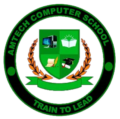COMPUTER LITERACY TRAINING
Computer Literacy Training Essentials refers to the fundamental skills and knowledge required to effectively use computers and digital technologies.
Comprehensive Outline for a Computer Literacy Training:

Module 1: Introduction to Computers
1.1 History of Computers
1.2 Basic Computer Components
1.3 Computer Types (Desktop, Laptop, Tablet, Smartphone)
1.4 Computer Applications
Module 2: Operating Systems
2.1 Introduction to Operating Systems
2.2 Windows Operating System
2.3 macOS Operating System
2.4 Linux Operating System
2.5 Mobile Operating Systems
Module 3: Computer Hardware
3.1 Computer Hardware Components
3.2 CPU (Central Processing Unit)
3.3 Memory (RAM)
3.4 Storage Devices (HDD, SSD)
3.5 Input/Output Devices
Module 4: Software Applications
4.1 Microsoft Office Suite
4.2 Google Suite
4.3 Adobe Creative Cloud
4.4 Social Media Platforms
4.5 Email and Online Communication
Module 5: Networking and Internet
5.1 Introduction to Networking
5.2 Types of Networks (LAN, WAN, Wi-Fi)
5.3 Internet Basics
5.4 Online Safety and Security
5.5 Email and Online Communication
Module 6: Cybersecurity
6.1 Introduction to Cybersecurity
6.2 Types of Cyber Threats
6.3 Password Management
6.4 Online Safety Best Practices
6.5 Data Backup and Recovery
Module 7: Digital Citizenship
7.1 Digital Etiquette
7.2 Online Communication
7.3 Cyberbullying Prevention
7.4 Digital Footprint Management
7.5 Online Resources and Tools
Module 8: Computer Maintenance
8.1 Computer Maintenance Basics
8.2 Virus Removal
8.3 Disk Cleanup and Defragmentation
8.4 Software Updates
8.5 Backup and Recovery
Module 9: Advanced Topics
9.1 Introduction to Programming
9.2 Web Development Basics
9.3 Data Analysis and Visualization
9.4 Artificial Intelligence and Machine Learning
9.5 Emerging Technologies
Module 10: Final Project
10.1 Create a Personal Website
10.2 Develop a Digital Portfolio
10.3 Design a Database
10.4 Create a Presentation
10.5 Final Project Presentation

COMPONENTS OF COMPUTER LITERACY TRAINING
Basic Computer Skills
- Computer hardware: Understanding computer hardware components, such as CPU, memory, and storage devices.
- Operating System: Familiarity with operating systems, such as Windows, macOS, or Linux.
- Software applications: Proficiency in using software applications, such as Microsoft Office, Google Suite, or other productivity tools.
Internet and Online Skills
- Internet navigation: Ability to navigate the internet, including searching, browsing, and accessing online resources.
- Email and communication: Understanding email etiquette, composing and sending emails, and using online communication tools.
- Online safety and security: Knowledge of online safety and security measures, including password management, phishing, and malware protection.
Digital Literacy Skills
- Digital citizenship: Understanding digital citizenship, online etiquette, and responsible digital behavior.
- Critical thinking: Ability to think critically and evaluate online information.
- Media literacy: Understanding different types of digital media, including text, images, audio, and video.
Productivity and Collaboration Tools
- Microsoft Office: Proficiency in using Microsoft Office applications, such as Word, Excel, and PowerPoint.
- Google Suite: Familiarity with Google Suite applications, such as Google Docs, Sheets, and Slides.
- Collaboration tools: Understanding collaboration tools, such as Zoom, Slack, or Microsoft Teams.
Data Analysis and Interpretation
- Data management: Ability to manage and organize data, including creating and editing spreadsheets.
- Data analysis: Understanding basic data analysis concepts, including charts, graphs, and statistical analysis.
- Data interpretation: Ability to interpret and draw conclusions from data.
Troubleshooting and Problem-Solving
- Troubleshooting: Basic troubleshooting skills, including identifying and resolving common computer issues.
- Problem-solving: Ability to solve problems using computer applications and online resources.
- Critical thinking: Ability to think critically and develop innovative solutions.
By mastering these computer literacy training essentials, individuals can effectively use computers and digital technologies to achieve their personal and professional goals

WHY FREE COMPUTER LITERACY TRAINING
Bridging the Digital Divide
- Equal access: Free computer literacy training essentials provide equal access to digital skills for all individuals, regardless of socio-economic background.
- Reducing digital divide: Free training helps bridge the digital divide, ensuring that everyone has the opportunity to develop essential digital skills.
Empowering Individuals
- Personal empowerment: Free computer literacy training essentials empower individuals to take control of their digital lives.
- Increased confidence: Free training boosts confidence in using digital technologies, enabling individuals to participate in the digital economy.
Supporting Economic Growth
- Economic growth: Free computer literacy training essentials support economic growth by equipping individuals with essential digital skills.
- Job creation: Free training helps create new job opportunities in the digital economy.
Enhancing Education
- Digital literacy: Free computer literacy training essentials enhance digital literacy, enabling individuals to access online educational resources.
- Personalized learning: Free training supports personalized learning, enabling individuals to develop skills at their own pace.
Promoting Social Inclusion
- Social inclusion: Free computer literacy training essentials promote social inclusion, enabling individuals to participate in online communities.
- Reducing social isolation: Free training helps reduce social isolation, enabling individuals to connect with others through digital technologies.
Supporting Healthcare
- Telemedicine: Free computer literacy training essentials support telemedicine, enabling individuals to access healthcare services remotely.
- Health education: Free training promotes health education, enabling individuals to access online health resources.
Supporting Civic Engagement
- Civic engagement: Free computer literacy training essentials support civic engagement, enabling individuals to participate in online democracy.
- Digital citizenship: Free training promotes digital citizenship, enabling individuals to understand their digital rights and responsibilities.
By providing free computer literacy training essentials, individuals can develop the skills and confidence needed to thrive in today's digital world
